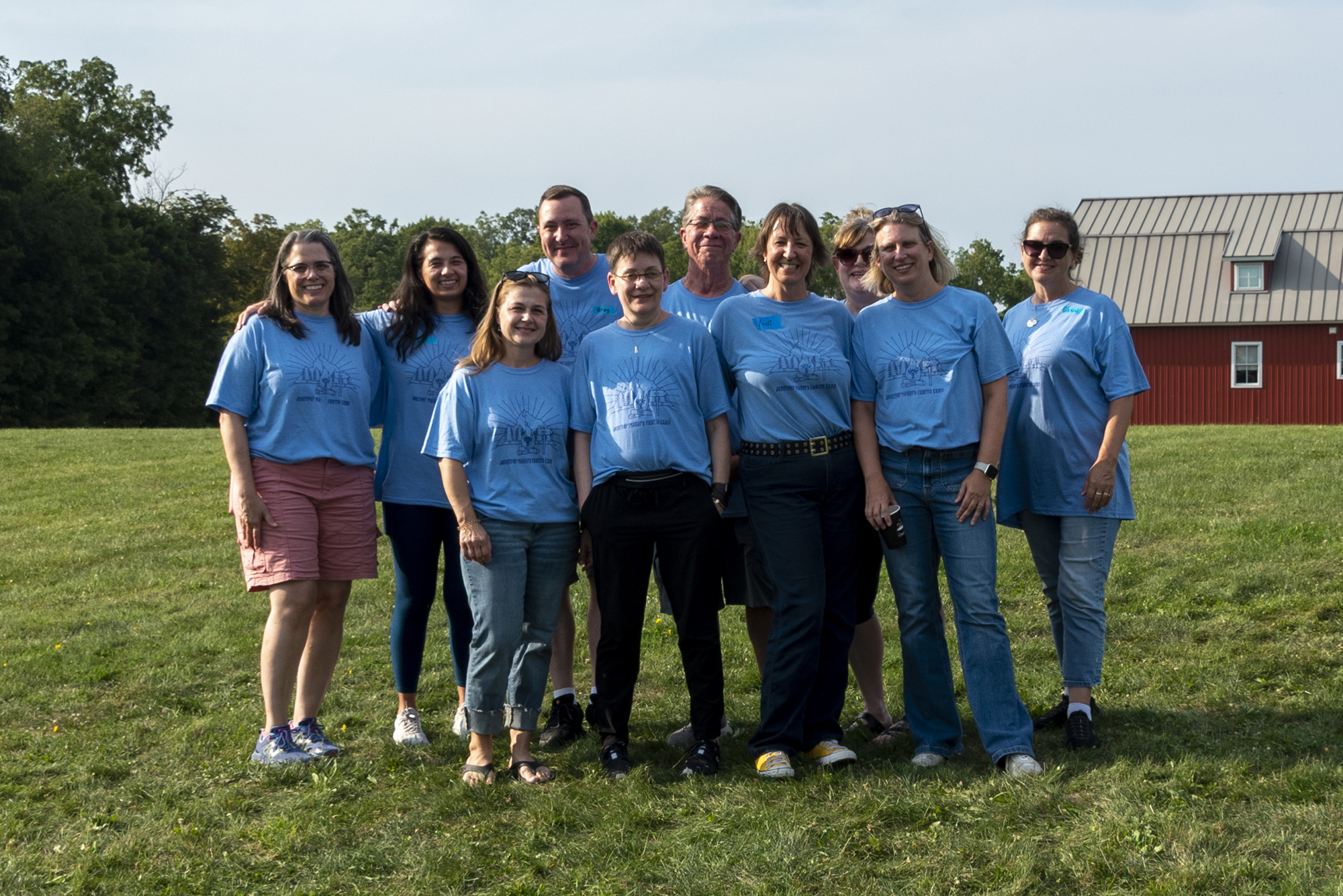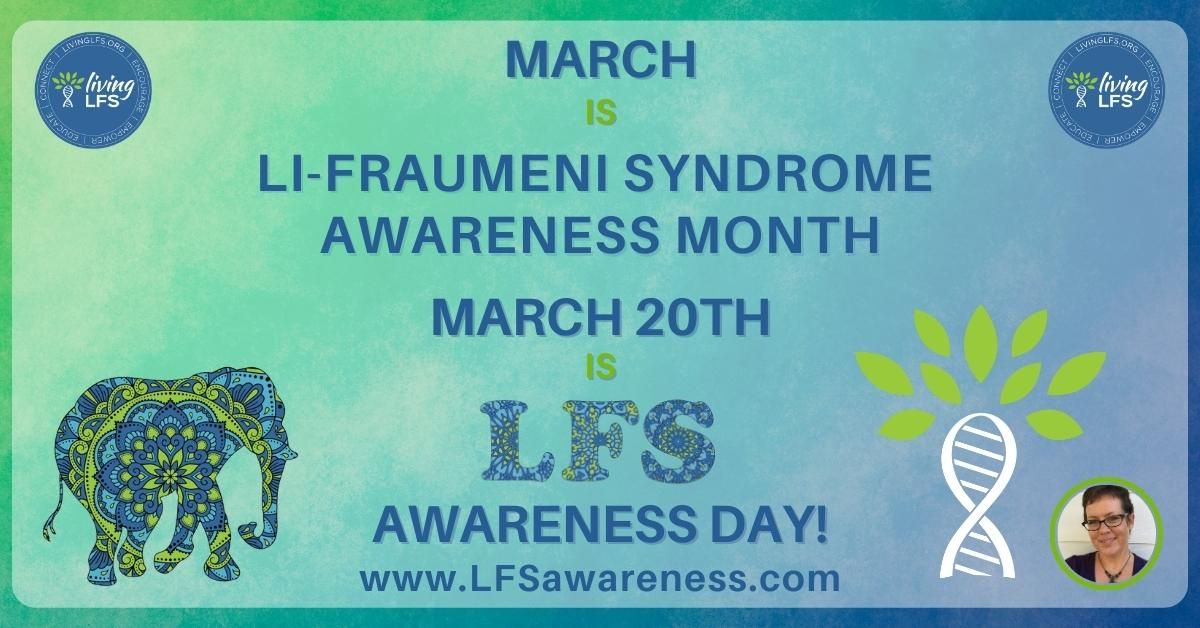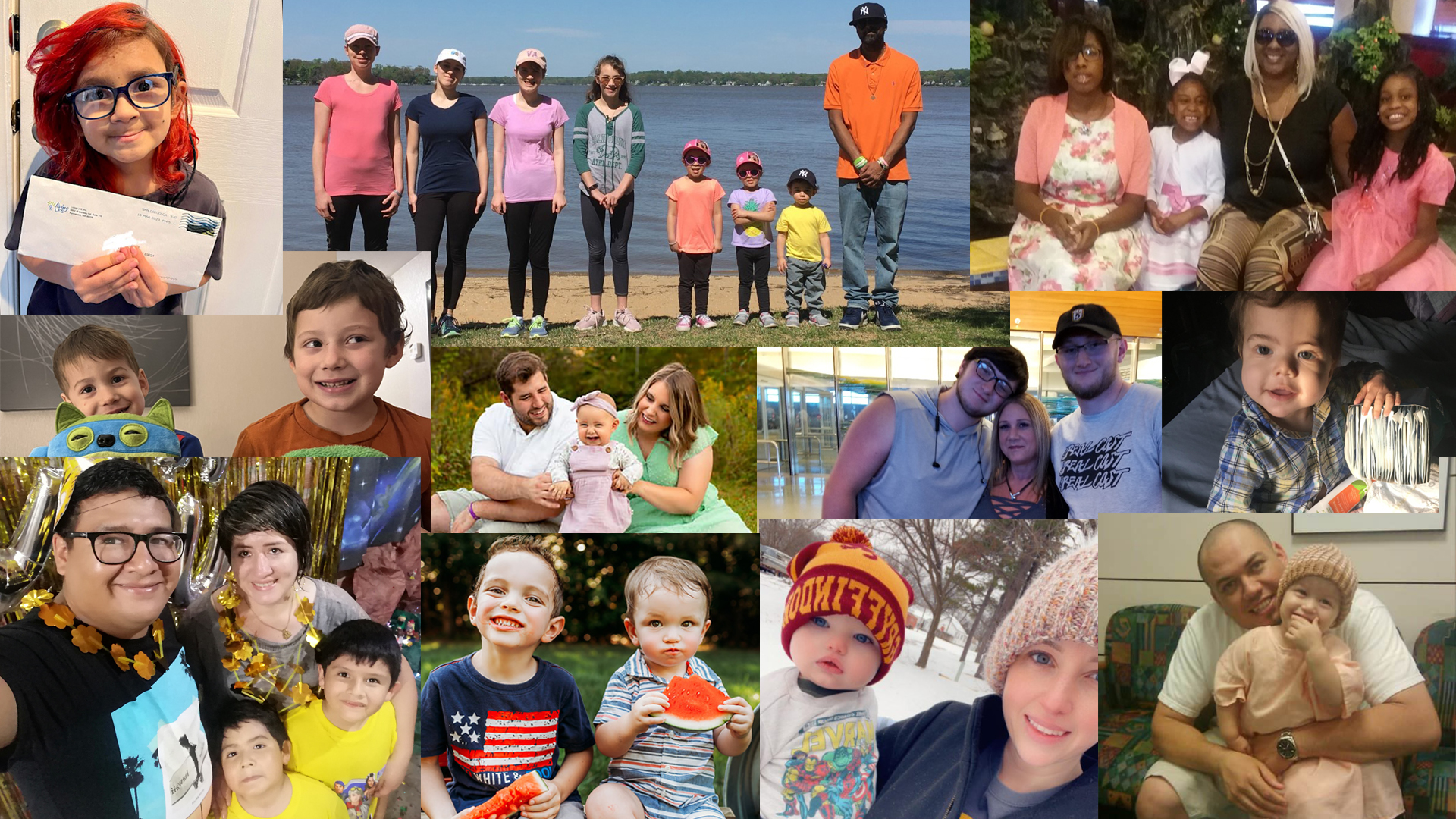I had the good fortune of attending the Wyss Family Hereditary Brain Tumor Symposium in Columbus hosted by Nationwide Children's Hospital. While most people would not consider listening to geneticists, researchers, oncologists and other doctors talk about some pretty technical things relative to cancer for a day and a half, it was easily the best part of my week. My daughter was found to have tumor regrowth in her brain three weeks ago. These discoveries and ideas become far more relevant when your child's health is implicated.
I found myself in a room with perhaps 150 people, listening to the presentations of experts in LFS as well as scientists dedicated to understanding genetics as it relates to brain cancers. While there were a few family members in attendance, this was a conference generally geared to medical professionals. I do not mind eavesdropping on the technical bits, even a little bit.
I attended an LFS conference in 2013, and was struck by some significant changes in how LFS is viewed by those who work in this field, in just two short years.
Testing, Screening and Psychological Damage
First, the ethics relative to testing children, the efficacy of screening as well as the psychological implications of learning your LFS status were topics frequently discussed and debated only a year and a half ago. Many questioned the ethics of testing children, when the burden of this knowledge carried no clear physical benefit. Prior to 2011, when the Toronto Protocol was published, there was no definitive action to be taken to mitigate cancer risk if a TP53 mutation was found. As a result, many patients chose not to test, and many parents were cautioned against testing their children.
On Monday, Dr. Steve Roach explained the general WHO screening guidelines, which are threefold: 1) The risk of disease must be significant and serious. 2)The screening must not be worse for the patient than the disease itself. And finally, 3) early diagnosis must be actionable and beneficial to outcome. LFS meets all three and I believe that prior to the Toronto Protocol, no one ever debated item one, but were initially very concerned about the psychological implications relative to item two. As a result, researchers had been reluctant to test the third issue at all.
I am happy to say that the value of cancer screening for LFS is not being debated any longer and that screening protocols have been developed for all of the rare brain cancer predisposition syndromes that were listed. Families are becoming empowered to find cancer in earlier and more treatable stages. All of the people that I encountered with LFS seemed to be managing pretty well, knowing their status.
Dr. Patenaude, PhD from Dana Farber reported that upon learning LFS status, many patients were actually relieved to have an explanation for their cancers and a plan for managing this risk. Rather than being overwhelmingly damaging psychologically, many patients experienced periods of anxiety around the time of cancer screening and while waiting for results, but they found reassurances in clean scans. Without screening, there would not be these periods of relatively low anxiety, nor any sense of control.
There was agreement across the board that the Genetic Counseling piece relative to testing is critical. I wholeheartedly agree. At Living LFS, we field inquiries daily from the newly diagnosed who are frightened and often times, ill-informed. Testing positive for LFS can be overwhelming and very difficult to take in all at once. Not only is genetic counseling relevant for diagnosis, but benefit can be garnered from follow up.
Furthermore, the implications of being an LFS carrier extend into nearly every aspect of life. I believe that the role of the Genetic Counselor should be a long term one, particularly as the landscape changes with a changing family history, additional diagnoses, family planning, testing and screening of children. These are all heady issues and the guidance of a GC in navigating these decisions would be beneficial.
Liquid Biopsies, earlier detection
The second bit of encouraging news follows this same philosophy of early detection. Currently, with screening protocols, doctors are not waiting for cancer to progress until symptoms develop. Many researchers showed images of brain MRI and you didn't need to be a radiologist to recognize these screenings revealed a big problem. However, the researchers in attendance are not satisfied simply picking up these often large, asymptomatic tumors, as they had most thankfully done for my own daughter in 2011. They want to do better, and to find cancer before tumors even develop.
Liquid biopsies are currently being used to track disease progression, analyze the efficacy of specific treatments and potentially detect relapsed disease by looking for circulating cancer cells in the blood, even in the absence of a detectable mass. Liquid biopsies take "early detection" to a whole new level.
A balanced summary on both the current challenges and promise of liquid biopsies: http://www.medscape.com/viewarticle/821923
There is great interest among some LFS researchers to further develop this new technology, and to apply it to cancer screening, rather than simply use it for relapsed cancer. They would like apply this technique for those with LFS to detect novel tumors. A blood panel could actually detect cancer earlier than would show up on an imaging study and potentially allow for treatment of tumors before they even form.
Dr. Schiffman from Huntsman has been talking about this for some time. He hopes that by pairing a small blood sample sent to Utah, with the regular screening which patients would do locally, a panel of tests might be developed to eventually replace the need for the expensive and cumbersome MRI screening that we currently have. As Research Liaison for Living LFS, I hope to work with Dr. Schiffman to help connect those interested in participating in this promising opportunity as it becomes available.
Immunotherapy
For me, the excitement surrounding immunotherapy is practical. My son is currently facing bone marrow transplant for treatment induced AML. While I am grateful for the fact that he has thus far successfully beat down his osteosarcoma, this current cancer was caused by that DNA toxic treatment. For children in particular, the long term effects of chemotherapy and radiation are significant and problematic--developing a secondary cancer is among these risks. For kiddos with LFS, their compromised cancer defense makes secondary cancer even more likely.
In addition, for folks with some p53 mutations, there is a problem with the programmed cell death mechanism. Part of the premise of traditional DNA toxic treatments is to cause enough damage to a cancer cell, that this function is triggered.
Immunotherapy brings hope, because it is not DNA toxic and does not rely upon a mechanism that we know does not always function properly for us.
Immunotherapy in all of its many forms, relies on the immune system to recognize and attack cancer cells. There are agents that put the "gas pedal" on the immune system. There are inhibitors that block the naturally occurring "brakes" of the immune system. There are CAR T-cell therapies, which help the immune system better identify cancer cells. By using vector viruses and other genetically engineered biotherapies, cancer is controlled using mechanisms outside of p53. Some of these therapies are extremely promising.
There were many other speakers who talked about discoveries and advances as well as the challenges ahead. While I fully recognize how much time and money the average mutant has tied up in medical care, (as I write this from a hospital) one of the goals at Living LFS is to facilitate and streamline the connection between researchers and willing members of our online community. As opportunities arise, we will provide information online for those who want to participate in this research.
They cannot do it without us. And we cannot improve this for our children, without them.


